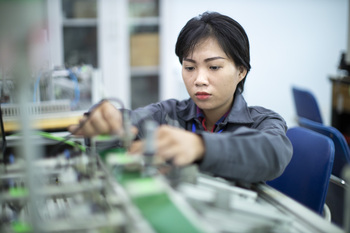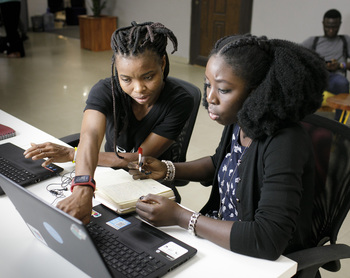Building partnerships for fair and development-oriented vocational training and labour migration
Partnership Approaches for Development-oriented Vocational Training and Labour Migration (PAM)

Context
The shortage of skilled workers is a challenge across the world. The United Nations 2030 Agenda and the UN’s Global Compact for Migration emphasise that vocational training and labour migration can drive economic, social and environmental development. It can raise the level of education through internationalisation, increase investment and diversification in the economy and create new opportunities and prospects for countries and people. There is enormous potential to be gained in the transfer of ideas, technologies and financial resources.
For regular vocational training and labour migration to be a success, however, challenges such as the recognition of professional qualifications, immigration management and integration need to be addressed on a transnational basis.
Objective
Strong partnerships between Germany and selected cooperation countries establish models for vocational training and labour migration. They help to train skilled workers for the future and to make regular migration fair.

Approach
The project builds transnational partnerships between companies, public authorities, educational institutions and civil society in the cooperation country and in Germany. The partners jointly develop and implement new ideas for fair migration for trainees and skilled workers. This includes preparing potential migrants and providing them with comprehensive information. In addition, an exchange of knowledge takes place between the cooperation countries and Germany.
The partnerships enable everyone involved to gain advantages, for example by increasing the quality and attractiveness of vocational training, whereas disadvantages such as a brain drain are avoided.
Last update: July 2023





